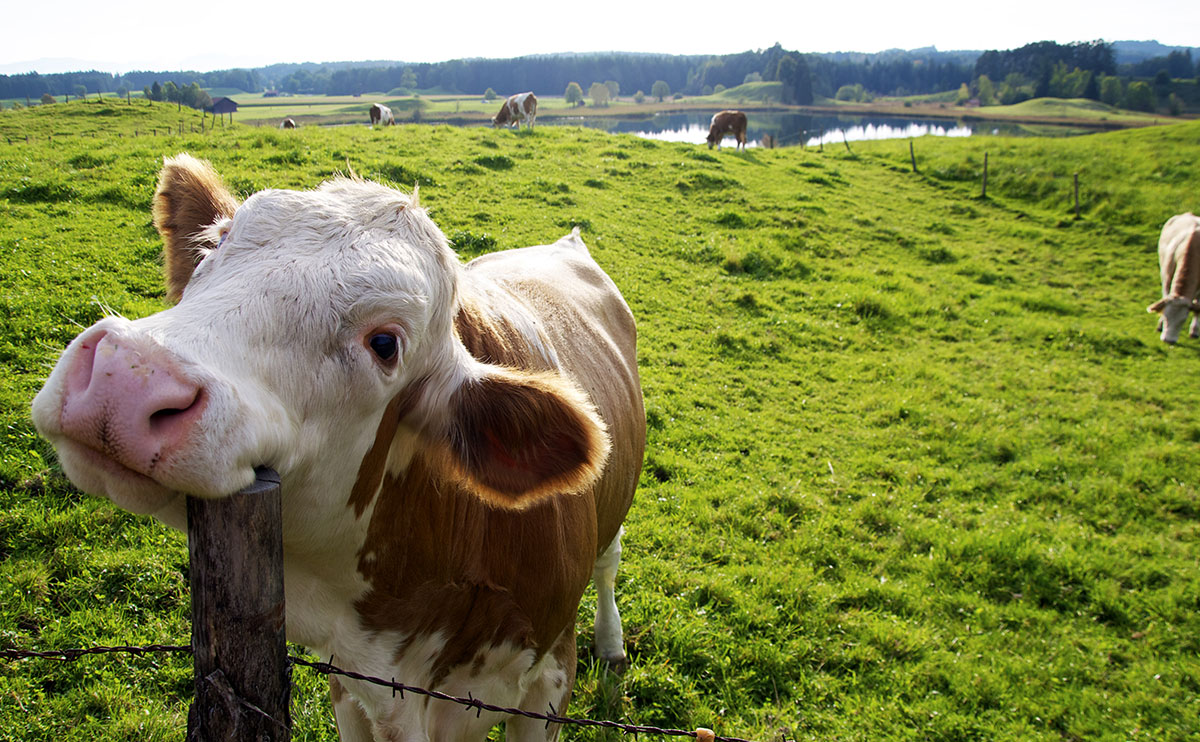Filmmaker Diana Rodgers and the Better Meat Movement
Author: Rocco Pallin | Published: December 16, 2017
Diana Rodgers is a dietitian, author, and sustainability advocate living on a working farm near Boston, Massachusetts. Through her Sustainable Dish website, blog, and podcasts, Rodgers aims to emphasize the importance of sustainable food systems and nutritional, healthy lifestyles. She presents recipes, nutrition and sustainable lifestyle tips, and interviews with various players throughout the food system. She also highlights the importance of understanding where food comes from when consumers make their food choices.
Rodgers believes in the nutritional and environmental benefits of well-managed, grass-fed cattle. In her new film Kale vs. Cow: The Case for Better Meat, she questions whether a healthy, sustainable, and conscientious food system can exist without animals.
Food Tank had the chance to talk to Diana Rodgers about her upcoming film, her efforts as a champion for better meat, and her thoughts on what consumers can do.
Food Tank (FT): How did you first become involved in the movement for better meat?
Diana Rodgers (DR): I live on a working organic farm outside of Boston with my husband and two kids, and I have a busy nutrition practice, blog, and podcast. I’ve always been interested in food and farming.
I worked on an organic farm during summers while I was an art student, and I’ve always spent a lot of time in the kitchen. In my mid-20s, I was diagnosed with Celiac disease. Going gluten-free solved many of the digestive problems I had been living with since a child, but it wasn’t until I reduced my dependence on processed foods that I really regained my health.
In my mid-30s, after a career in food marketing, I decided to become a dietitian. There was a strong vegetarian undercurrent among my professors, and I knew there was a need for an advocate for ‘better meat.’ Not all meat is factory-farmed, treated inhumanely, and cancerous, yet we never learned about sustainability issues during the coursework to become a Registered Dietitian. I’m passionate about humane handling and I’m on the board of Animal Welfare Approved. Red meat is quite a nutrient-dense food, and well-managed cattle are one of our best chances at reversing climate change.
FT: What inspired you to make your upcoming film Kale vs. Cow?
DR: There’s a big difference between factory-farmed meat and well-raised meat, yet you would never know this from some of the recent anti-meat documentaries out there. The media has really attacked cows as a major cause of climate change and human disease, and many people feel that it’s unethical to eat them. I’ve seen some pretty outrageous health claims in recent documentaries, such as that meat causes diabetes and that sugar is just fine. Anyone with some basic understanding of science and human metabolism can tell you this is just false information.
I think it’s time to defend meat and debunk these illogical arguments. I decided to move forward with my own film project to explain that meat is not necessarily as bad as many like to think. I understand sustainable food production and human nutrition, plus, I have a background in multimedia production; this project was a natural fit!

